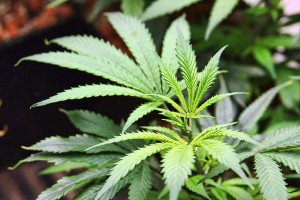Can Marijuana “Brands” Be Legally Protected Against Copying?
In states like California, where medical marijuana is a big business, dispensaries often feature dozens of kinds of marijuana. Each has it own (supposed) qualities, often reflected in the price per gram. And these names, while colorful, are pretty standardized: newspapers like the LA Weekly run pages of ads that list prices for “White Widow,” “Skywalker OG,” “Strawberry Kush,” and “Charlie Sheen”.
Can you trademark a strain of marijuana to keep a competitor from copying your “brand”? The answer is more complicated than you might think.
First, names like Strawberry Kush are not necessarily brands, but more like plant varieties, such as Meyer lemon or Alphonso mangoes. Plant varieties in general cannot be trademarked. Instead, breeders essentially get a form of plant patent. Growers and breeders can add a trademark on top of that, but the underlying plant variety name ultimately goes into the public domain for all to use. In other words, Fuji apples are a variety; Ranier Brand Fuji Apples is a trademark. A competitor can’t call their Fuji apples “Ranier”, but nothing stops a competitor from identifying their apples as Fujis.
But other pot monikers – like “Charlie Sheen” – don’t refer to a plant variety, but to . . . well, how you might behave if you smoke it. These labels could serve as trademarks – i.e., names or other symbols that identify the source of products. But does what works for apples work for marijuana? In 2010, the federal Patent and Trademark Office created a medical marijuana category for trademark registration. After receiving a number of submissions, someone at the PTO—perhaps wise in the ways of Congress—thought better of this idea and killed it.
The brief life of the federal pot category doesn’t mean a trademark cannot be claimed for a medical marijuana name. It appears that no such trademark has ever been successfully registered at the federal level. And when someone tried to trademark “Marijuana” for a drink, the PTO denied it on the grounds that “the term MARIJUANA refers to an illicit drug that is associated with illegal behavior and adverse health consequences. The proposed mark is therefore immoral or scandalous and thus unregistrable.”
That said, trademark protection under both state and federal law does not require registration of the trademark with the government, but merely that the mark actually be used in commerce to identify the source of a particular product or service. That is already happening. But that doesn’t mean that courts are ready yet to enforce pot trademarks. Medical marijuana lies at the frontier of licit and illicit goods, and until that changes, courts are apt to find ways to avoid lending the business any additional legitimacy. So for the moment, the pot industry lacks many of the protections other products have against copying. Much the same used to be true for pornography—another field that went, more or less, from illegal to legal and along the way gained greater IP protections. Some 17 states, and the District of Columbia, permit medical uses of marijuana. If (or, more likely, as) this trend continues, IP protection is sure to follow.


Comments